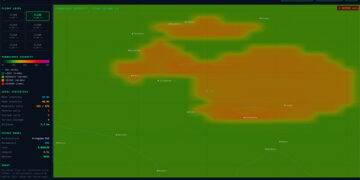Understanding the statistical probability of winning, expressed as the game’s payout percentage, can empower smart casino-goers to make informed decisions at the tables and machines. While casinos publish these payout rates, the house always maintains an underlying mathematical advantage known as the house edge. Mastering a few key concepts helps level the playing field.
Defining Payout Percentages
Most casino games at FortunePlay Casino operate on randomness, but over time they are designed to pay back less than 100% of the wagers placed. The remainder represents profit for the house. The published payout percentage expresses the average rate at which wagers are returned to players as winnings over time. This rate accounts for all bets placed, ranging from the lucky few who walk away big winners to the unlucky majority who lose their bankroll.
Slot Machines: The Highest-Paid Games?
Modern slot machines often advertise sky-high payout percentages at or even above 95%. However, fine print typically specifies “up to” these rates. The following factors contribute to lower actual returns:
- Only top jackpot prizes may reach the published rates. Smaller wins average 50-75%.
- Bonus features with big payouts do not hit frequently enough to raise the overall average substantially.
- Progressive slots start below 92% until the jackpot grows.
Additionally, seasoned players watch for games with higher denomination bets, allowing bigger wins despite similar payout rates.
Table Games: Consistent Odds to Count On
Table games generally offer more transparency than slots, with consistent statistical odds built into the rules. Players can calculate probabilities once they learn the house edge intrinsic to each game. For example:
| Game | House Edge |
| Blackjack (perfect play) | 0.5% |
| Craps (pass/come bet) | 1.41% |
| Roulette (double zero) | 5.26% |
Scrutinizing the Fine Print
Responsible players should always verify published payout rates before risking funds. Here are some tips:
- Slot machine rates account for all wagers. Bets on unlikely jackpot symbols lower returns below advertised maximums.
- Table game odds can fluctuate based on specific rules and special bets. Learn all the rules first.
- Rapid jackpots and bonuses may seem lucrative but often carry 10-20X wagering requirements before cashing out.
- Unregulated online casinos could present misleading information with no oversight.
Other Factors Impacting Payback
Random number generators driving modern slot machines ensure fair statistical odds built into game software. Mechanical issues no longer impact payouts. However, both slots and table games retain a human element with the potential to alter returns:
- Player choices influence odds in blackjack, video poker and other skill-based games. Optimal strategy is essential.
- Bonus funds and free play offers seem generous but cannot exceed maximum payout rates.
- Dealers can make payable mistakes or clandestinely cheat, though oversight minimizes such issues.
Getting the Best Odds
Finding available games with the lowest house edge according to published rules gives players their best shot. For example, full-pay video poker and pass/come bets in craps offer among the lowest casino advantages around 1.5%, while certain blackjack variants played perfectly dip even lower. Single-zero roulette cuts the house edge nearly in half compared to the double-zero game.
Players should always gamble responsibly within reasonable budgets for entertainment. Understanding game odds helps balance risks and make educated bets. Over time the house inevitably wins, but knowledge of payout rates lets savvy gamblers stretch their entertainment dollars. Just be sure to dig deeper than the advertised numbers!





























